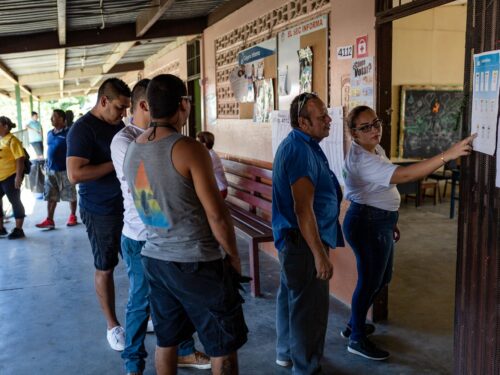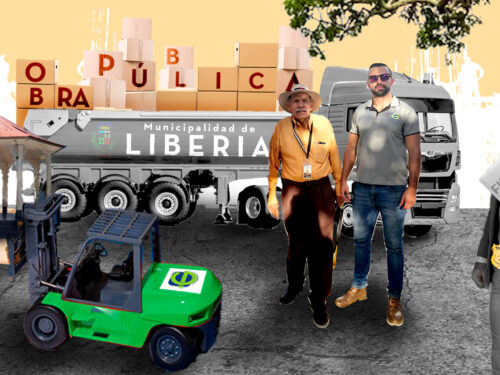
Liberia’s vice mayor, Arianna Badilla, filed an appeal for electoral protection before the Supreme Electoral Tribunal (TSE for the Spanish acronym) after Mayor Luis Gerardo “Pipo” Castañeda suspended three of the tasks that he had assigned her in June of this year.
The tasks that he relieved her of are: procedures related to the Integrated Public Procurement System (SICOP for the Spanish acronym) platform, organization of entrepreneurship fairs and coordination of social and recreational management projects.
According to the vice mayor, the functions that she still has are participating in meetings once a month for the Municipal Emergency Committee, the Regulatory Improvement Commission and the Territorial and Rural Development Council. A fourth task has to do with legal support for the municipality.
The functions that he delegates to me are not in accordance with the position I have, in my popularly elected position,” Badilla told The Voice of Guanacaste.
The appeal for electoral protection is a mechanism to ensure compliance with political-electoral rights when faced with specific situations of a threat or injury to such rights.
The TSE received the appeal for protection on November 3 and it is currently being processed.
“The mayor has been granted a hearing to comment on the incidents alleged by the vice mayor,” said lawyer Andrei Cambronero of the TSE.
Following the notification from the TSE, Castañeda has four business days to give his position on Badilla’s allegations. The institution has already notified him (by this article’s deadline, the TSE hadn’t specified when).
Then the TSE will study the case and will decide whether or not to uphold the appeal, in other words, whether or not the vice mayor recovers her tasks.
The way Badilla sees it, Castañeda’s motivations come from internal conflicts within the Christian Social Unity Party (PUSC for the Spanish acronym). “I participated in the renovation of PUSC structures. I presented a ballot and obtained representatives and he didn’t,” the vice mayor commented.
The Voice consulted the mayor about the accusations and the process. “I’m not going to comment on the case, ok?” was all he said by phone on the afternoon of Tuesday, November 9.
Political Violence
Suppressing the functions of female vice mayors is one of the manifestations of political violence based on gender that women face most frequently at the municipal level.
This type of violence also happens when party leaders intimidate a woman elected by the people into resigning from her position, according to the model law regulating political violence and harassment, prepared by the Inter-American Committee on Women at the Organization of American States (OAS).
They still view us as guests in a place that ‘isn’t ours,’ in quotation marks,” Anayensy Herrera, an official from the National Institute for Women (INAMU for the Spanish acronym), had previously explained to The Voice.
“That’s why in political gender violence, there’s the intention to limit female participation in political posts,” she added.
Costa Rica doesn’t currently have a regulation on political violence based on gender. However, the Legislative Assembly has introduced bill 20.308 “Law to Prevent, Handle, Punish and Eradicate Violence against Women in Politics,” which was unanimously approved by the women’s commission.







Comments